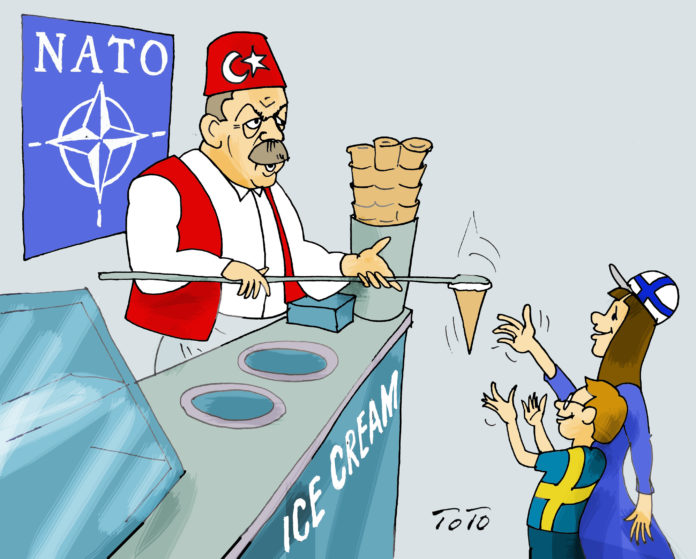Turkey’s authoritarian president, who plays hardball in domestic and regional politics, has decided to use the same tactics against its Western allies.
Turkey has accumulated various grievances against its NATO allies and has chosen the applications of Sweden and Finland to join the alliance as the proper opportunity to hold all the allies hostage. In addition, only last week Turkey’s president, Recep Tayyip Erdogan, said that the Greek Premier Kyriakos Mitsotakis is dead to him as the latter had lobbied for the US not to sell F-16 jets to Turkey.
Russia’s war against Ukraine has scared its Nordic neighbors who now seek refuge and security with NATO, allowing Erdogan to extract concessions from those two countries and the US in return for its consent to lift its objection against the admission of those two countries into the alliance.
NATO does not have a mechanism to expel a member – which some US legislators would have liked to have used against Turkey, but it has rules in place to obstruct the entry of aspiring members. According to the NATO manifesto, all the members have to give their consent for a new member to join.
A delegation from the foreign ministries of Sweden and Finland traveled last week to Ankara to hold a five-hour meeting with Turkey’s Presidential Spokesperson Ibrahim Kalin, with no apparent result. Incidentally, in recent months, Kalin’s image has been enhanced in foreign policy formulation to the point of overshadowing Foreign Minister Mevlut Çavusoglu.
Before going into the details of the standoff between those two countries and Turkey, we need to pause for a moment to question the wisdom of their application to join NATO.








